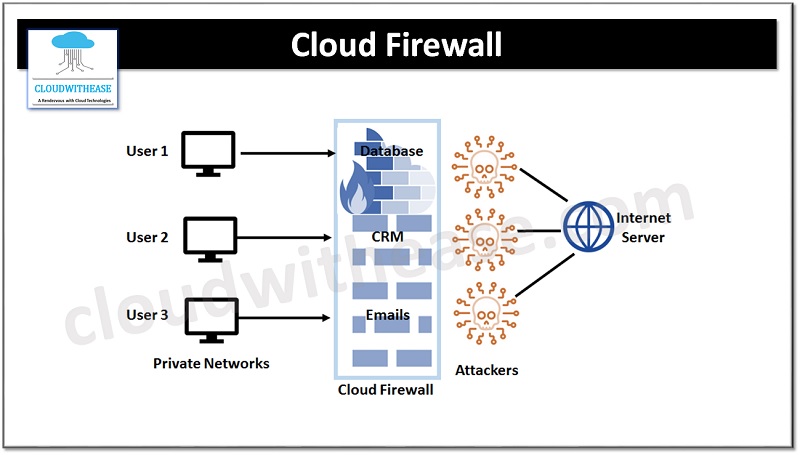Table of Contents
Evolution of Firewalls
Firewalls are considered the first line of defence in perimeter security. It examines incoming traffic and blocks malicious data packets to enter the organization’s network. As organizations started growing and boundaries of enterprises started diminishing and people and digital assets moved beyond the walls of offices, risks, vulnerabilities, and attack surface was expanded resulting in evaluation of perimeter security which totally relied on traditional firewalls.
With the advent of cloud slowly all resources started becoming virtual and then this gave rise to the concept of adopting cloud-based approach to firewalls as well also referred as Firewall-as-a-Service (FWaaS).
Today we look more in detail about cloud firewalls and on premise firewalls, understand the difference between the two i.e. Cloud Firewall vs On Premise firewall, limitations, advantages etc.
Problem with On Premise NGFWs (Next generation firewalls)
On premises firewalls are an effective mechanism as the first line of defence however, it is a tough choice to run a centralized firewall with a geographically distributed employee base. Centralized firewall requires traffic on the first route to the data center so it has to pass through the firewall before going to cloud service resulting in backhauling traffic which is inefficient.

There are certain issues with on premises firewalls related to huge efforts involved in deployment and management of physical appliances in branch locations resulting in administrative burden, high costs and opportunity window for configuration errors, it also results in dragging down end user experience due to latency issues for remote workers, moreover, appliance-based firewalls work on traditional security perimeters such as location.
Cloud Firewalls as a Solution
Cloud firewalls deployment models may vary from local appliances to cloud. It provides additional benefits especially for cloud services and work from home employees. Cloud firewalls eliminate the need for forecasting, planning, deploying, upgrades and management of dedicated firewall appliances and its related network infrastructure.

They do not require backhauling user traffic which reduces latency issues and connectivity problems and help in improving the security posture by reducing the attack surface, centralized and direct control over virtual firewalls let you configure and enforce firewall policies in a quicker and consistent manner across all users, irrespective of their locations.
Cloud Based Firewall Advantages
- Easy to deploy without putting too much effort
- Scalability in accordance with organization requirements
- Higher availability, redundant power, and automated backups
- Identity protection as they have the capability to integrate access management controls, having users’ better control on filtering tools
- Faster recovery with point in time snapshots
What to choose? Cloud Firewall or On Premise Firewall
For larger sites dedicated security appliances are the best solution because on premises firewalls have lower cost of ownership as compared to cloud firewalls – in case of large sites. Cloud managed firewalls involve capital expense.
Cloud firewalls are best suited for safeguarding critical applications and information, smooth out branch workplace security, and safeguard private cloud resources.
Cloud Firewall vs On Premise Firewall
- Cloud firewall is easy to deploy while on premise firewall setup is moderately complex and requires technical expertise for deployment.
- In terms of scalability, cloud firewalls are easy to scale as per requirements. On the other hand, on premise firewalls require additional hardware and software to be procured and deployed.
- On-premise firewall is managed by an in-house IT team, additional costs and resources required. On the contrary, cloud firewalls are managed by vendors with no additional cost or resources.
- When it comes to control and flexibility, an on-premise firewall provides high control as it is managed in-house. Cloud firewalls provide moderate control being managed by vendors.
- Cloud firewalls are highly resilient and the resiliency of on-premise firewalls can be moderate or high depending on architecture design (redundancy considerations).
- Cloud firewalls are more or less easily compatible with multi-cloud environments. On the contrary, on premise firewalls require separate set up.
Comparison Table: Cloud Firewall vs On Premise Firewall
Below table summarizes the differences between the two types of firewalls:

Quick facts!
On premises firewall market segment is estimated to be 66.7% in year 2022, Cloud Firewalls Market to Surpass US$ 10.4 Bn by 2032


Excellent